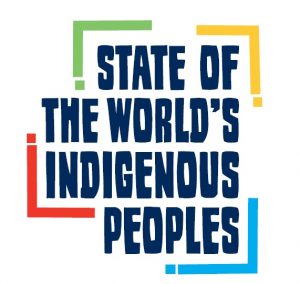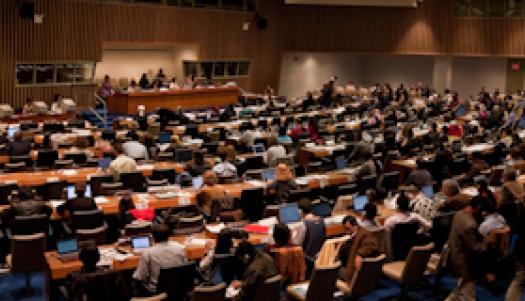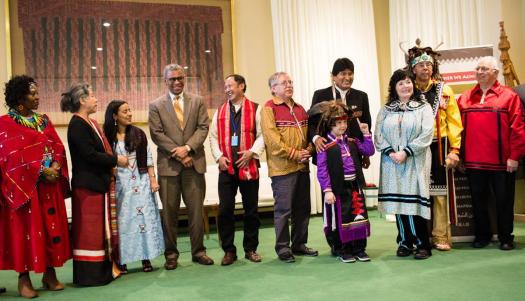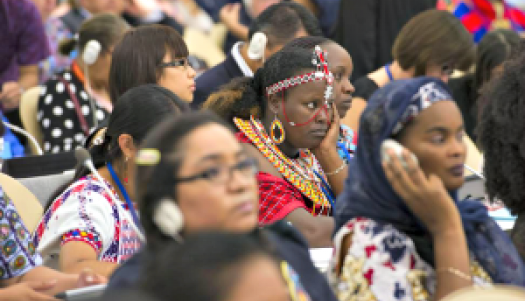Recognizing the gaps in analytical research on the situation of Indigenous Peoples, the Permanent Forum on Indigenous Issues called for a report on the state of the world’s Indigenous peoples. The Forum believed that this report will help dispel the myths and inconsistencies about Indigenous Peoples, and demonstrate their unique identity and traditions, as contributions to the world’s bio-cultural diversity.
In response, DESA issued the State of the World’s Indigenous Peoples in 2009. This was the first global, authoritative report by the UN system to focus on Indigenous Peoples, with the 2014 second edition focusing on Indigenous Peoples’ Access to Health. The third edition has been prepared with the contributions of experts on Indigenous education, a key focus area for the UN Permanent Forum. The Secretary-General of the United Nations, António Guterres, who started his career as a teacher, recently said that mothers and fathers around the world would make any sacrifice for their children’s education. Indigenous peoples fully realize that education is key for preserving their traditions and building their future.
The 2007 Declaration on the Rights of Indigenous Peoples provides the normative framework for our work on the rights of Indigenous Peoples. Article 14 of the Declaration reiterates that Indigenous Peoples have the right to establish and control their educational systems and institutions, to an education in their own culture and provided in their own language. This edition of the State of the World’s Indigenous Peoples analyses the situation of Indigenous Peoples and their right to education. It describes the different contextual backgrounds and policy impacts on Indigenous Peoples, faced with the challenge of embracing mainstream education, while at the same time revitalizing their own languages and cultures.
Ten years has passed since the UN Declaration on the Rights of Indigenous Peoples was adopted, yet many challenges remain. There are alarming reports of Indigenous languages in danger of extinction. Conservative estimates suggest that more than half of the world’s 6,700 languages will become extinct by 2100 and the majority of the languages under threat are Indigenous languages. This publication provides concrete actions to secure the identity, languages and cultures of Indigenous peoples, and implement the UN Declaration on the Rights of Indigenous Peoples as a standard of achievement to be pursued in a spirit of partnership and mutual respect.
The 2030 Agenda on Sustainable Development includes explicit consideration of Indigenous Peoples, and pays particular attention to education. Sustainable Development Goal 4 focuses on ensuring inclusive and quality education for all and promote lifelong learning. If we want to achieve this goal is necessary to ensure equal access to education for Indigenous children, including children with disabilities. I hope that this publication helps readers to better understand where we are, so that this Goal can be reached.
Read the report here.
Mariam Wallet Aboubakrine
Chair of the Permanent Forum on Indigenous Issues
 Welcome to the United Nations
Welcome to the United Nations



